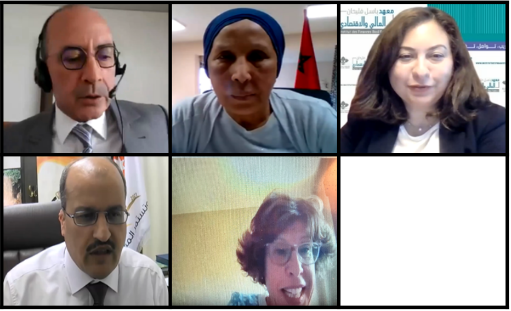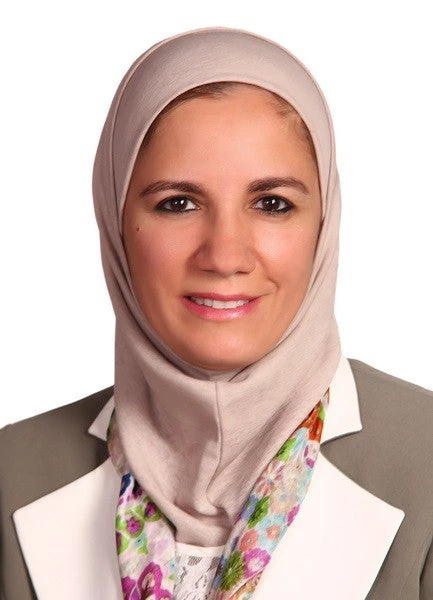 Arne Hoel / World Bank
Arne Hoel / World Bank
Solid public procurement systems rooted in transparency, trust, and efficiency are necessary for successfully handling public procurement during challenging times, was a key conclusion of the conference "Reflecting on the Past, Building for the Future: Public Procurement During Challenging Times" held June 7-9, 2022.
At the event, about 600 specialists worldwide discussed and agreed not to return to the pre-pandemic ways of doing public procurement. The broad consensus was that innovative and out-of-the-box thinking is required to build resilience and prepare governments for future emergencies.
During the event, the discussions spotlighted interventions and presentations from a range of stakeholders, including World Bank senior management, policymakers and practitioners from MENA, representatives from other Multilateral Development Banks, UN agencies, and the private sector.
One of the intensely debated issues was that emergencies are unique and require faster processes, fewer reviews, and pressure to move quickly to award contracts, which increases risks and chances for things to go wrong. Key messages from the conference largely focused on what governments in MENA should consider implementing in public procurement to confront the current crises and include a suite of practical solutions.
The participants convened by the World Bank Middle East and Northern Africa (MENA) Procurement Team also debated the need for governments to invest in digital technology and human resources. Participants agreed that countries with electronic procurement systems necessarily had an advantage, particularly during the early days of the pandemic, over countries with systems that remain largely paper based. E-procurement strengthens transparency and accountability and, crucially, it facilitates business continuity. Similarly, given the complexities of emergencies, purchasing officers need to have the right mix of skills, such as the ability to negotiate conditions that are most appropriate and be able to manage contracts. This requires proactive engagement by governments to embrace digital technology in public procurement and build the capacity of purchasing officers. Several discussants pointed to the major supply chain disruptions and the need for governments to ensure that their supply chains are resilient. Although the difficulty for governments to access the vaccine market has eased slightly, it has not altogether disappeared, thus suggesting that how governments approach and access markets will be a key determinant to their ability to navigate ongoing crises and future emergencies.
Several stakeholders argued that Governments should be encouraged to adopt flexibility and build trust between public purchasers and contractors to ensure the continuity of complex contracts. There was consensus that there are no one-size-fits-all solutions, and working together to ensure that infrastructure contracts succeed benefits the public and private sector more than allowing contracts to fail.
The participants added that building strong public procurement systems that can respond effectively to emergencies evolves over a long-time horizon. As such, governments are encouraged to establish procurement policy units with the mandate to strategize and take the lead in designing, developing, and implementing public procurement reforms.
Panelists and participants concluded that implementing the identified practical solutions will help governments in MENA to carry out public procurement during challenging times. Such solutions can also bring more extensive societal benefits, such as facilitating job creation by lowering barriers to entry for small and medium enterprises to access and participate in public procurement or promoting a greener agenda by implementing green public procurement and sustainable procurement.
The virtual conference aided in networking and knowledge sharing and was just the start of a conversation about carrying out public procurement during challenging times. Stay tuned for follow up discussions, and don’t forget to participate by leaving your comments below.
Moments from the conference

Opening Remarks by Ferid Belhaj and Indermit Gill

Public procurement achievements in MENA
Learning about handling COVID-19 from Enzo de Laurentiis (World Bank); Dorcas Noertoft (UNICEF), Frank Muvla (AfDB), and Aamir Mir (IsDB).
Learning about mitigating disruptions in construction contracts with interventions by Stefan Koeberle and Hiba Tahboub (World Bank), Dr. Azhar Hussein and Eng. Hussain Khadim (Iraq), Eng. Amal Youssef (Egypt), Anne-Claire Howard and Fayyaz Faiz-Rasul (UNOPS), Irwin Perret (CICA), and Zoltan Zahonyi (Consultant). Facilitated by Howard Centenary and Yash Gupta.
Learning about procurement policy units (clockwise from upper left): Nadir Mohammed, Vinay Sharma, Nazaneen Ali, Lina Tutunji, Simeon Sahaydachny (World Bank); Rim Zehri (Tunisia); Moayed Odeh (West Bank & Gaza); Amgad Mounir and Mohamed Adel (Egypt).
Achievements through procurement policy units in (clockwise from upper left): Tunisia, West Bank & Gaza, Poland, and Egypt.
Replay the three-day video conference here.








Join the Conversation